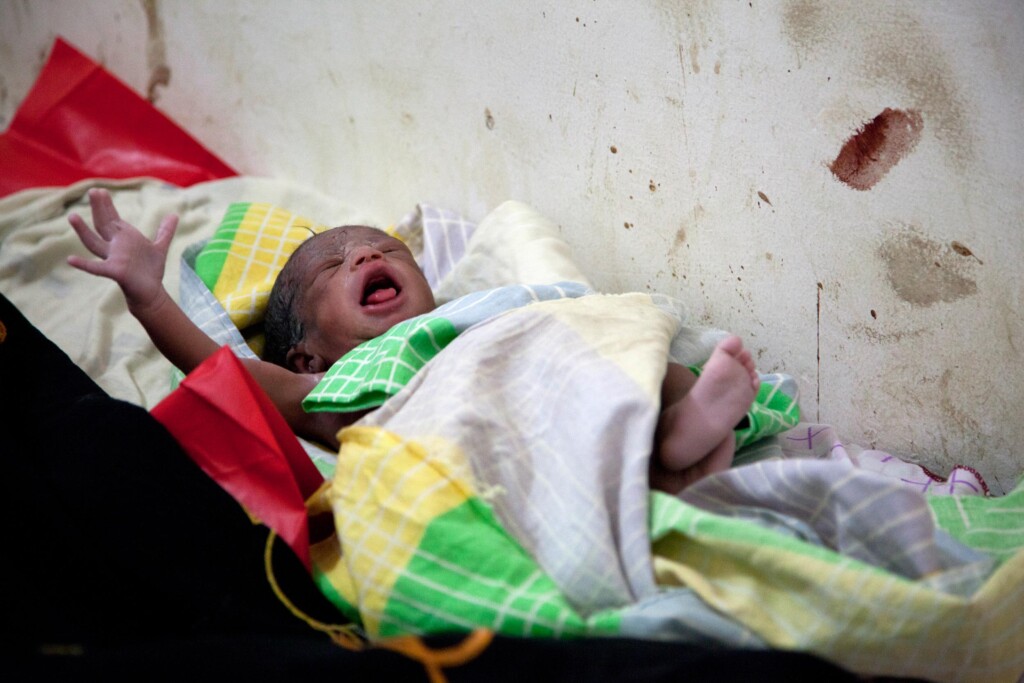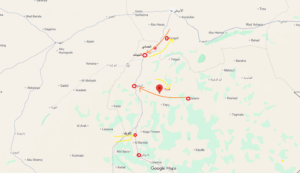Dozens of babies died in Khartoum orphanage during war

A newborn baby in El Fasher, North Darfur, in 2011 File Photo-Albert González Farran / UNAMID)
KHARTOUM – May 30, 2023
Reports emerged that more than 50 babies died of starvation and dehydration in Maygoma orphanage in Khartoum since the war started in mid-April. “They needed to be fed every three hours. There was no one there,” Dr Abeer Abdallah told news outlet Reuters.
Since the outbreak of the war, there is not enough staff to care for children in the Maygoma state-run orphanage in Khartoum. Most of the deaths are newborns, less than a year old, who need the most frequent feeding.
On Friday alone, 13 babies died, mostly of severe malnutrition and dehydration. On social media, many expressed their sadness and outrage over these “invisible victims of Sudan’s war”.
Abdallah told Reuters that the scenes of babies lying dead in their cribs have been “terrifying“. “It is very painful.”

The orphanage has hosted up to 400 young children in the past, often under the age of five, and has received even more orphans since the war started.
Many orphanage workers were forced to stay home or flee when the war started. Maygoma became so understaffed that there were only about 20 carers for the roughly 400 children, doctor Doaa Ibrahim told Reuters. Each carer thus needs to take care of 20 children, whereas there would usually be one carer for every five children.
“I worked as a nanny, nurse, and a doctor, feeding one baby, giving antibiotics to some, changing diapers for others,” Ibrahim said, and she did not know “how many I would find dead when I woke up” after the little bit of rest she was could get.
The doctor soon collapsed of exhaustion and fever and had to leave Maygoma only four days into the war, Reuters reported. “God forgive us if we didn’t do our best,” she said.
‘They needed to be fed every three hours. There was no one there’
Conditions
Reuters spoke to eight other people “who have either visited the orphanage since the war began or have been in touch with other visitors” and they confirmed that the conditions have “deteriorated badly”, not only because of the staff shortages.
Siddig Ferini, general manager of Khartoum state’s ministry of social development, explained that the power outages caused by the fighting mean that ceiling fans and air conditioning do not work, which makes “rooms turn stiflingly hot in Khartoum’s baking May weather”. The lack of power makes sterilising equipment difficult.
The neighbourhood also remains dangerous too with airstrikes and shelling happening only days ago. Carer Heba Abdallah told Reuters that babies had to be evacuated from one of the orphanage’s rooms after a nearby explosion.
Babies are also dying elsewhere in Khartoum, alongside many other patients.
The manager of the El Dayat maternity hospital said that at least nine babies and an unspecified number of adult intensive care patients died when staff was forced to evacuate the hospital patients. They were unable to evacuate those on ventilators and incubators because that required specialised ambulances, which were not available.











 and then
and then